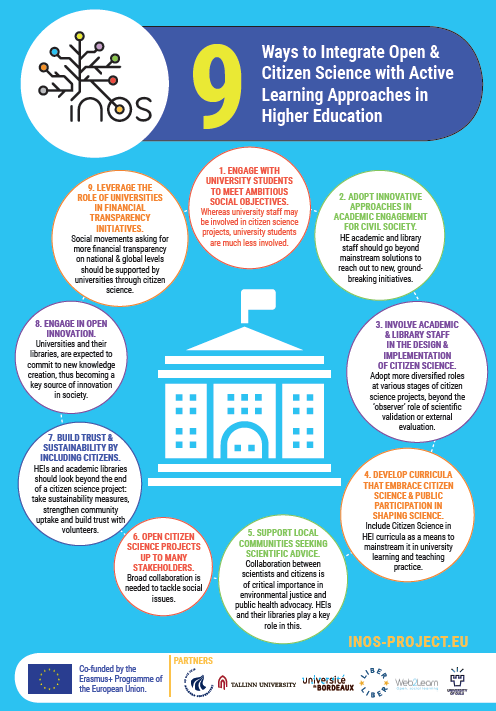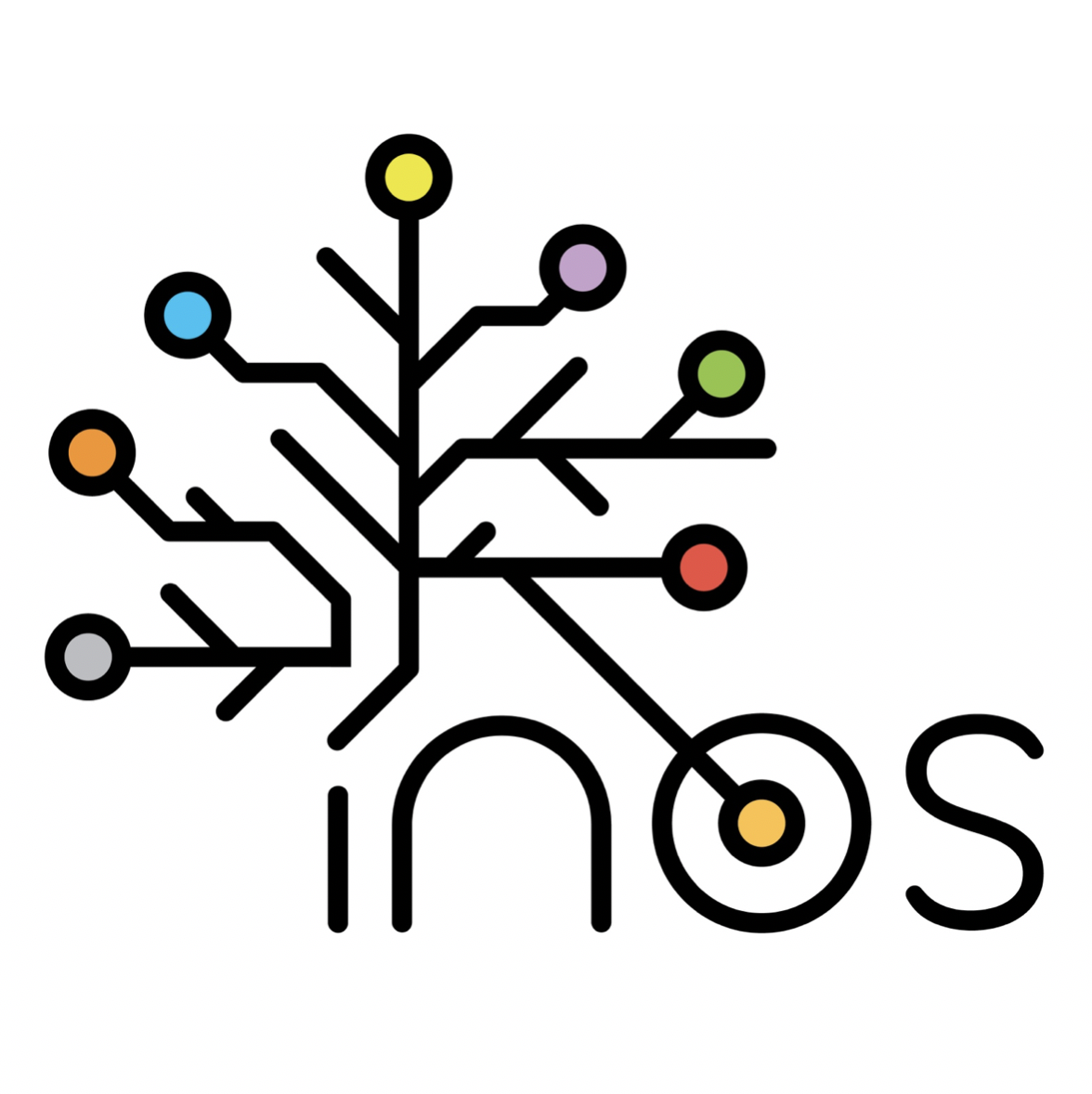10 Mar 9 Ways To Integrate Open & Citizen Science With Active Learning Approaches in Higher Education
How can Higher Education Institutions make better use of Open and Citizen Science in their work? At this week’s Open Science Conference in Berlin, INOS is highlighting nine ways to do just that.
Our tips are displayed on a poster which can be viewed at the conference, or downloaded here.
 The nine recommendations of INOS are:
The nine recommendations of INOS are:
- ENGAGE WITH UNIVERSITY STUDENTS TO MEET AMBITIOUS SOCIAL OBJECTIVES. Whereas university staff may be involved in citizen science projects, university students are much less involved.
- ADOPT INNOVATIVE APPROACHES IN ACADEMIC ENGAGEMENT FOR CIVIL SOCIETY. HE academic and library staff should go beyond mainstream solutions to reach out to new, ground-breaking initiatives.
- INVOLVE ACADEMIC & LIBRARY STAFF IN THE DESIGN & IMPLEMENTATION OF CITIZEN SCIENCE. Adopt more diversified roles at various stages of citizen science projects, beyond the ‘observer’ role of scientific validation or external evaluation.
- DEVELOP CURRICULA THAT EMBRACE CITIZEN SCIENCE & PUBLIC PARTICIPATION IN SHAPING SCIENCE. Include Citizen Science in HEI curricula as a means to mainstream it in university learning and teaching practice.
- SUPPORT LOCAL COMMUNITIES SEEKING SCIENTIFIC ADVICE. Collaboration between scientists and citizens is of critical importance in environmental justice and public health advocacy. HEIs and their libraries play a key role in this.
- OPEN CITIZEN SCIENCE PROJECTS UP TO MANY STAKEHOLDERS. Broad collaboration is needed to tackle social issues.
- BUILD TRUST & SUSTAINABILITY BY INCLUDING CITIZENS. HEIs and academic libraries should look beyond the end of a citizen science project: take sustainability measures, strengthen community uptake and build trust with volunteers.
- LEVERAGE THE ROLE OF UNIVERSITIES IN FINANCIAL TRANSPARENCY INITIATIVES. Social movements asking for more financial transparency on national & global levels should be supported by universities through citizen science.
- ENGAGE IN OPEN INNOVATION. Universities and their libraries, are expected to commit to new knowledge creation, thus becoming a key source of innovation in society.
Learn More
Want to know more? See our full report on this topic.

